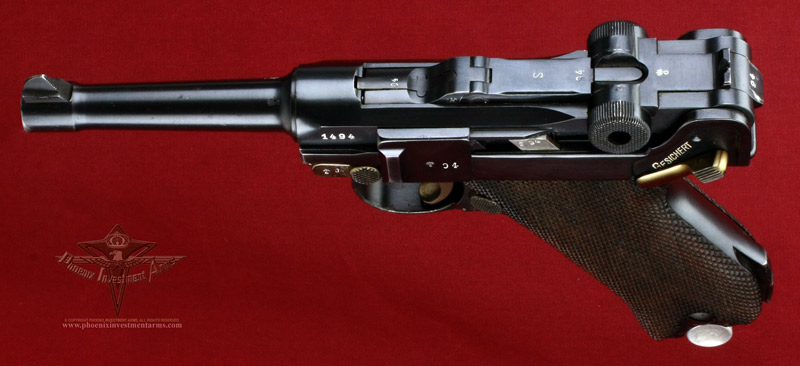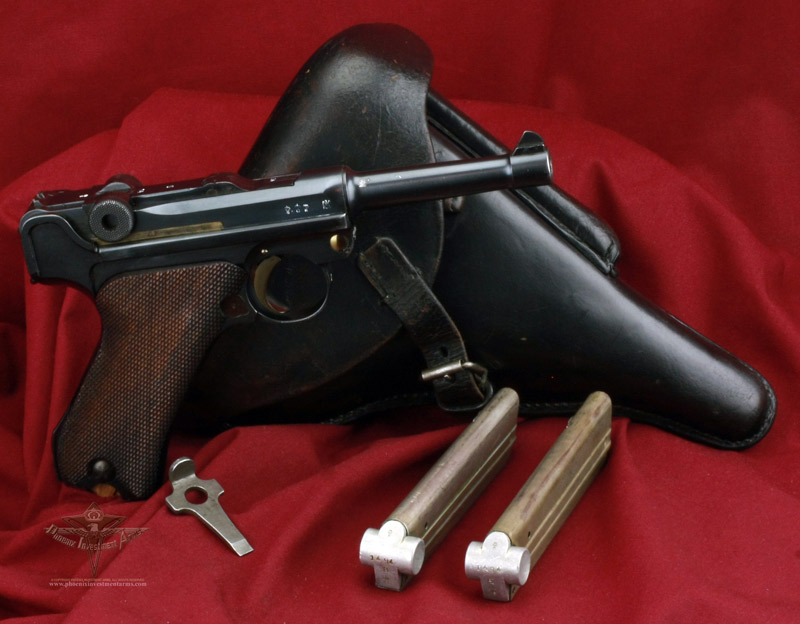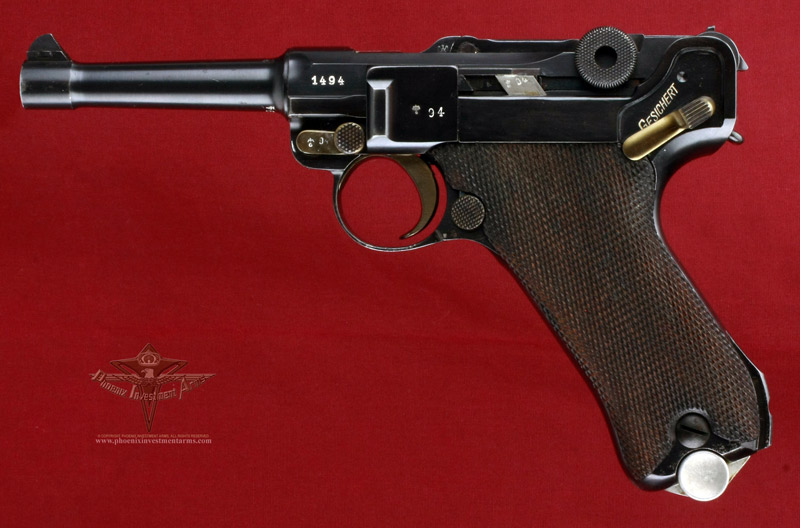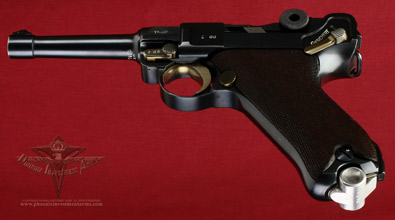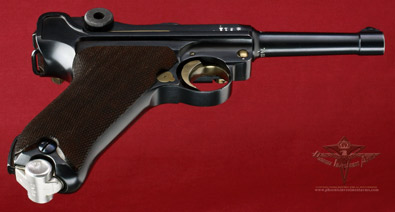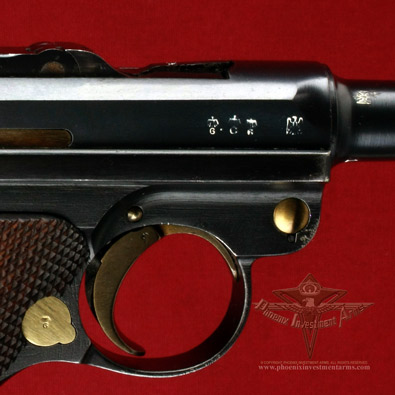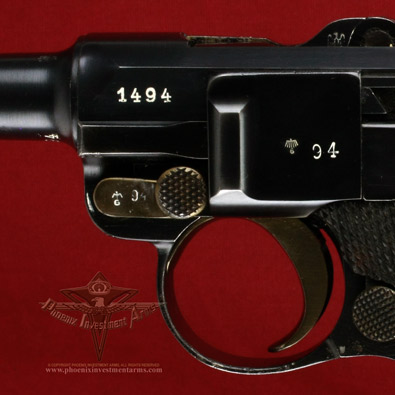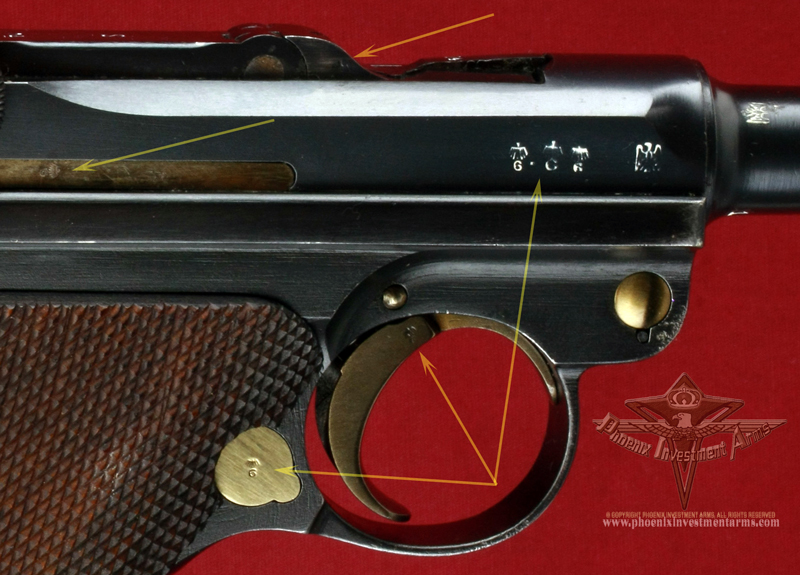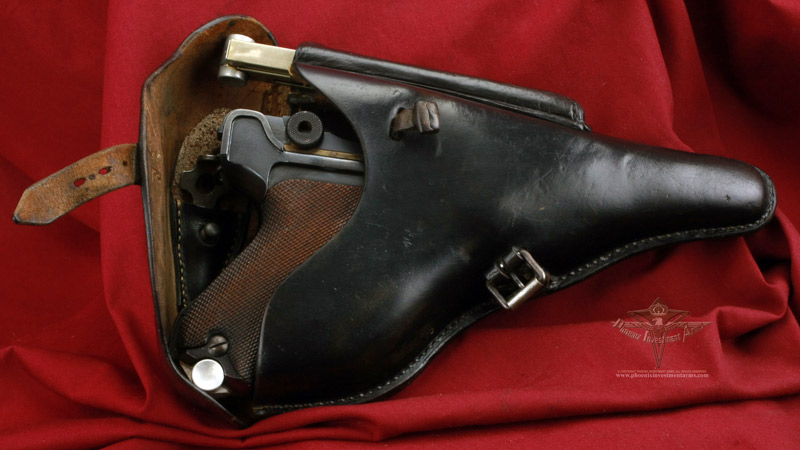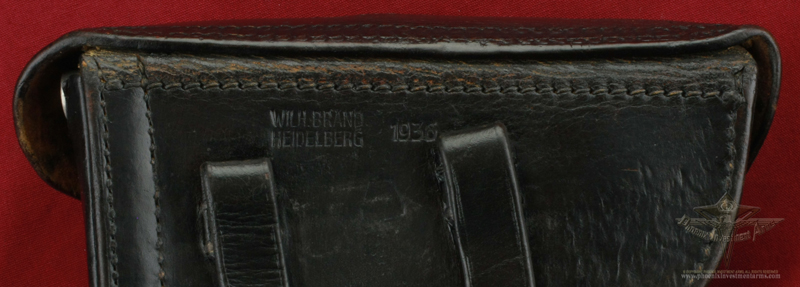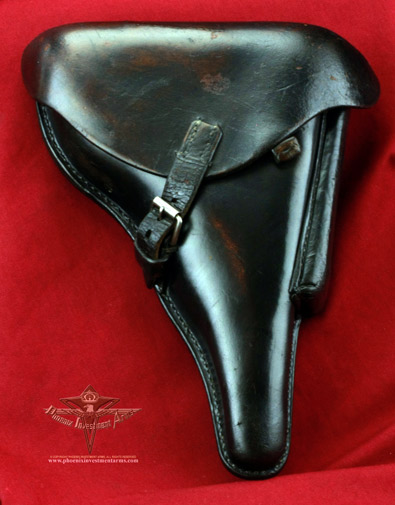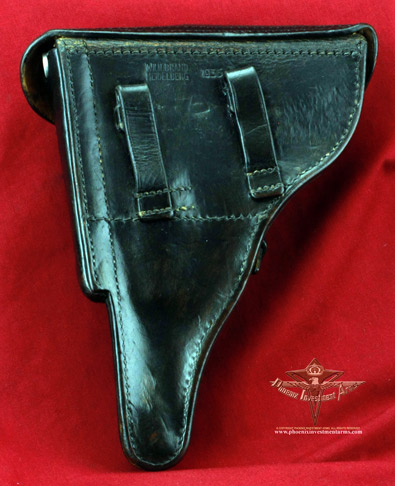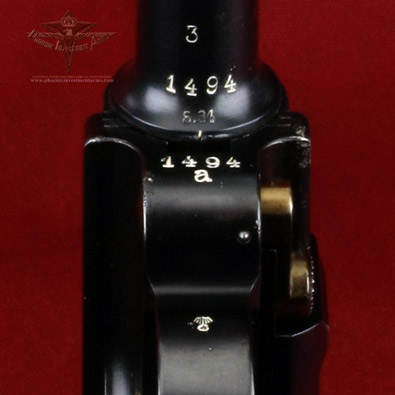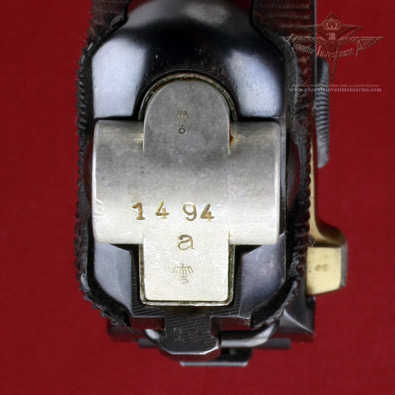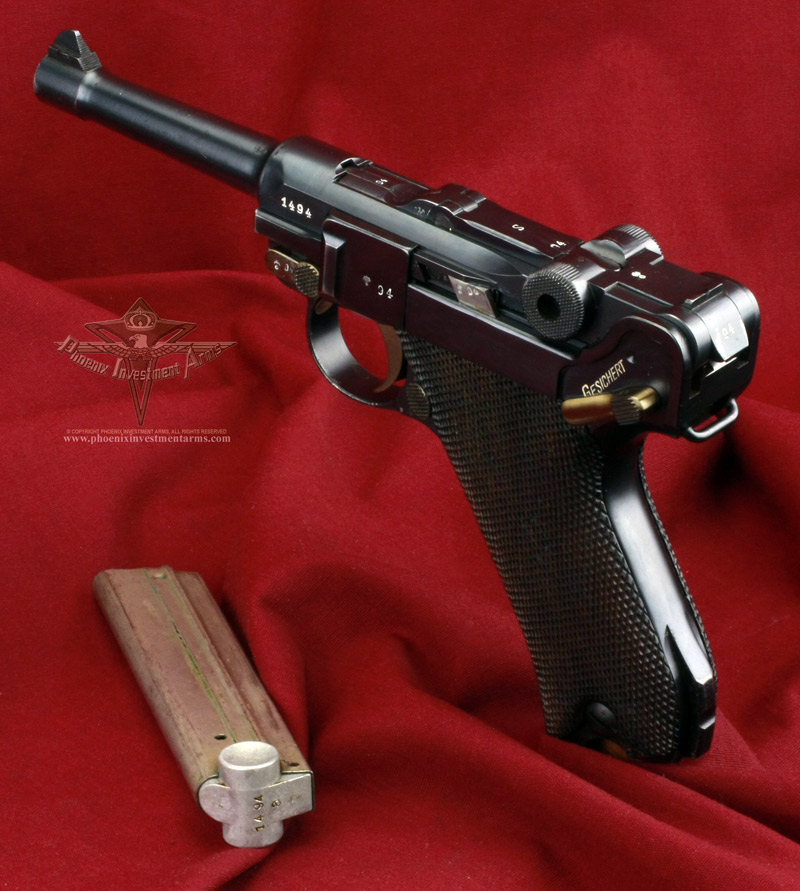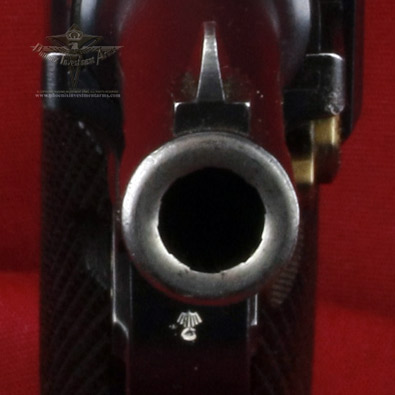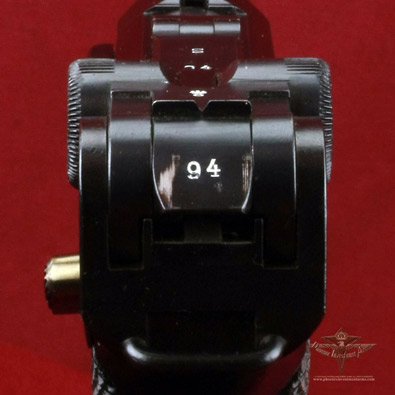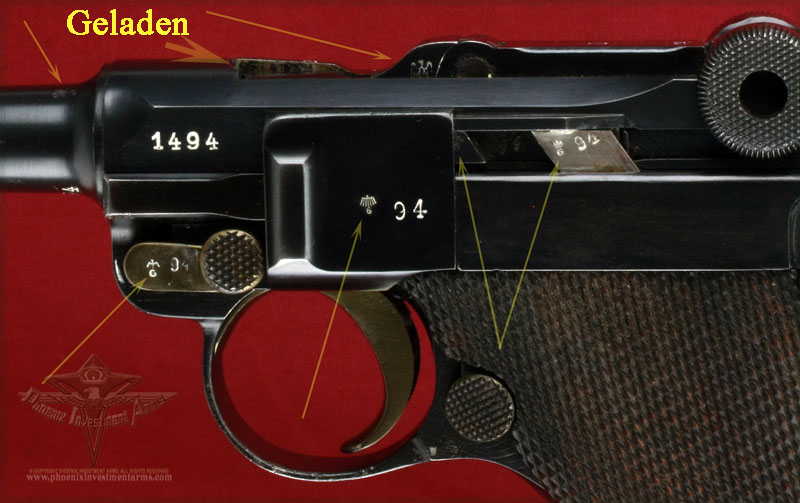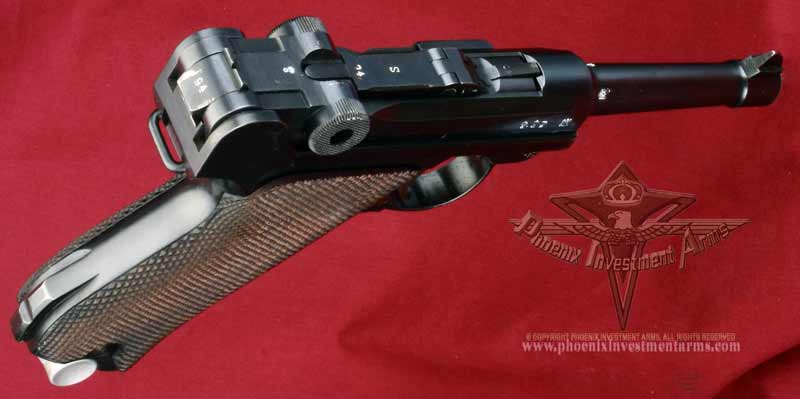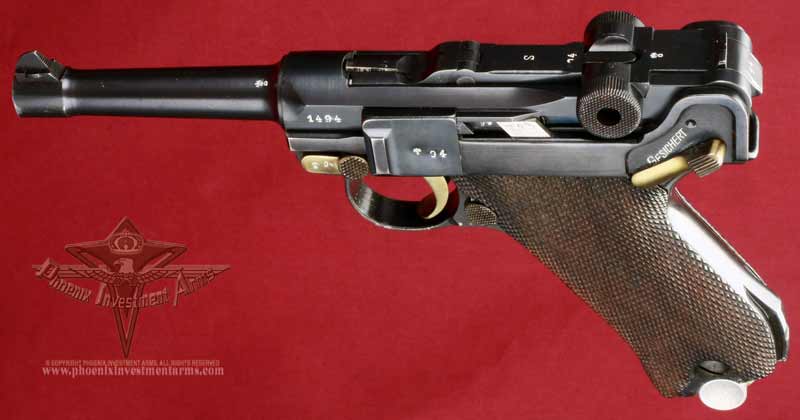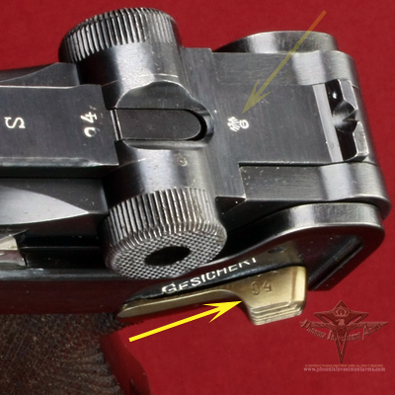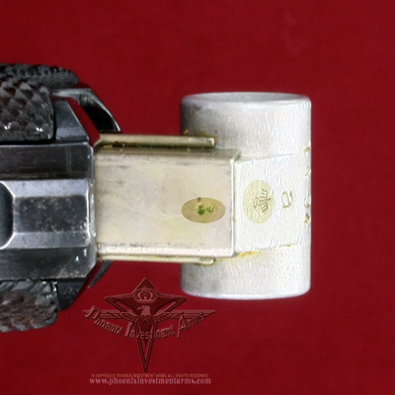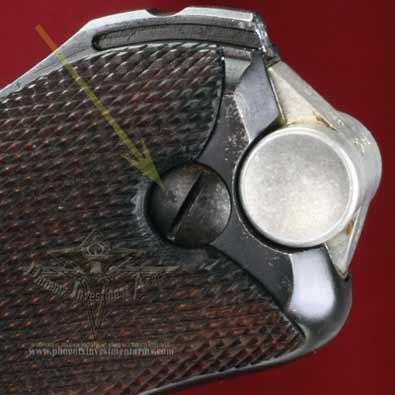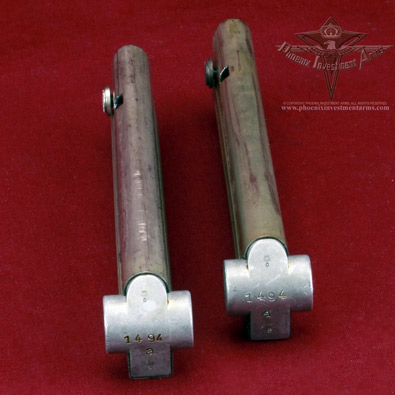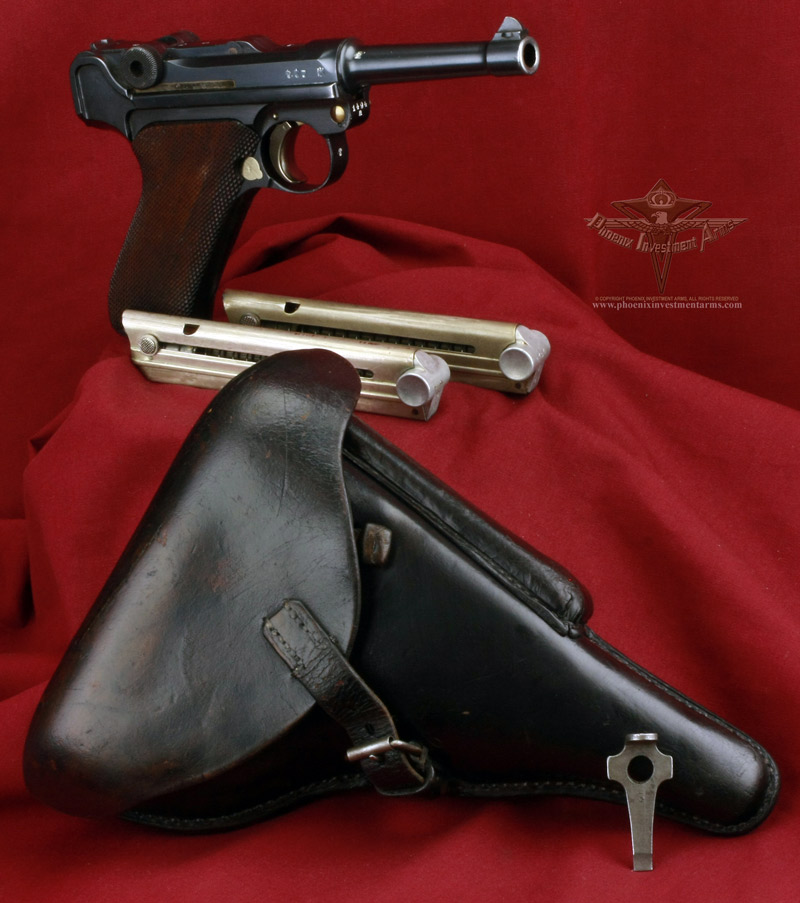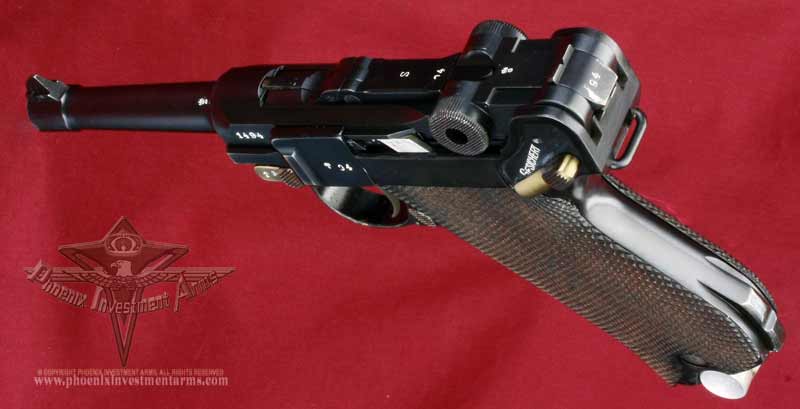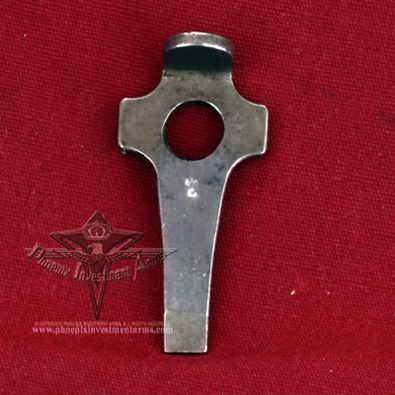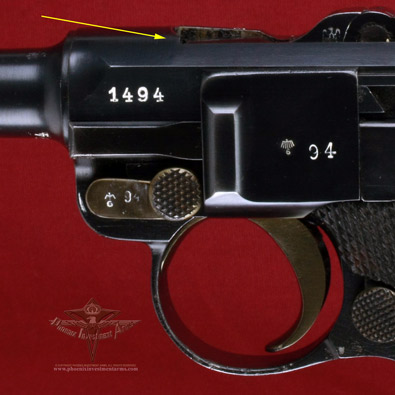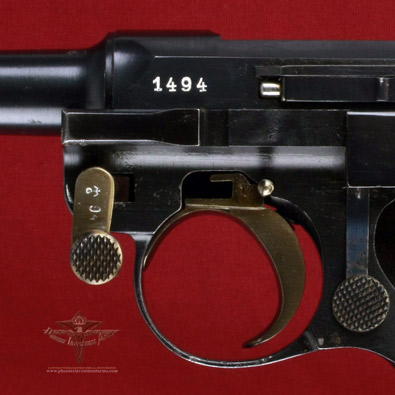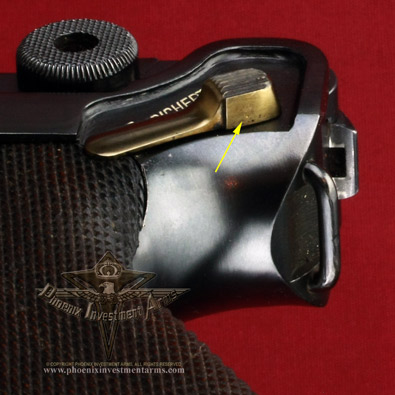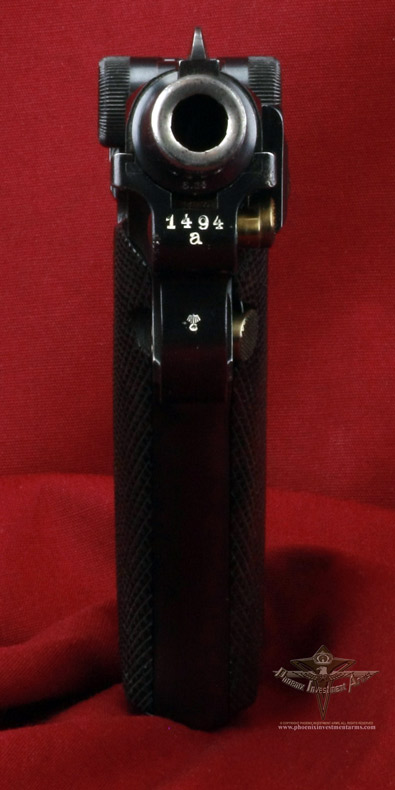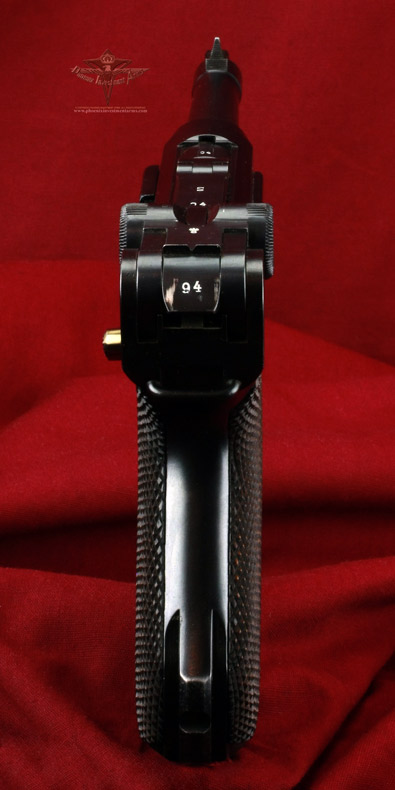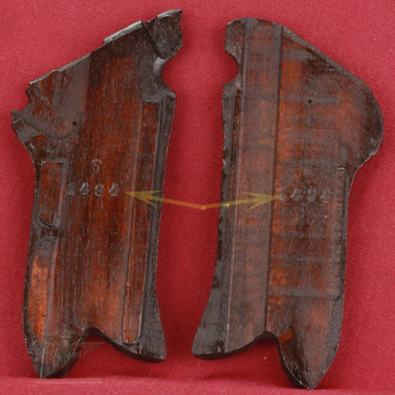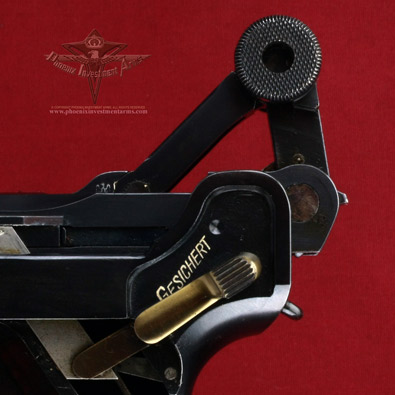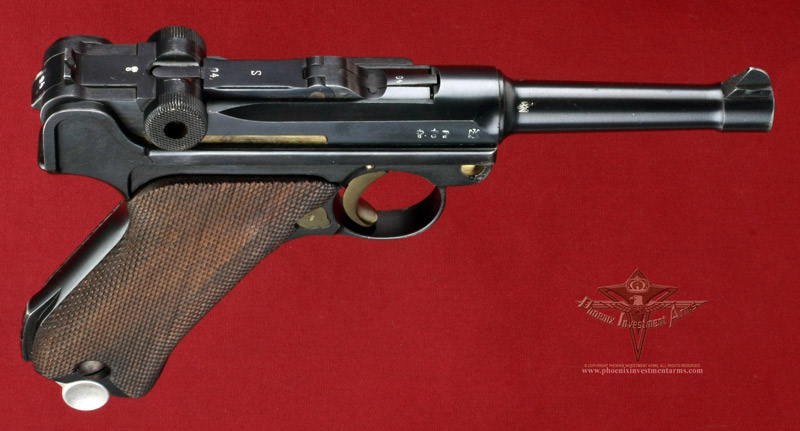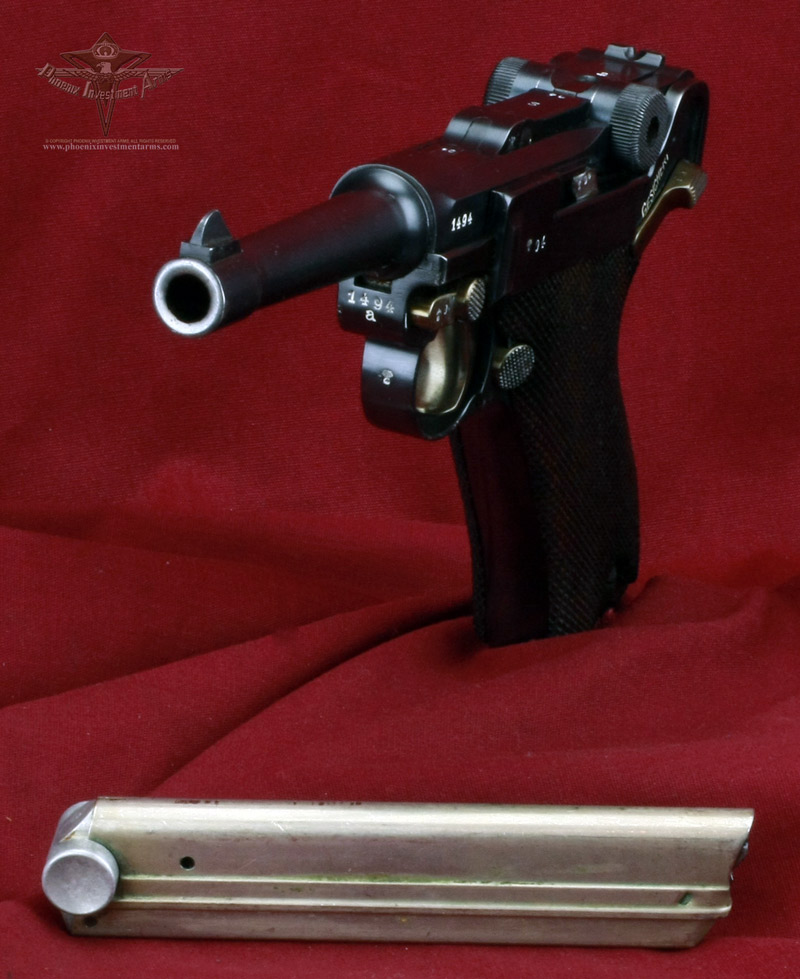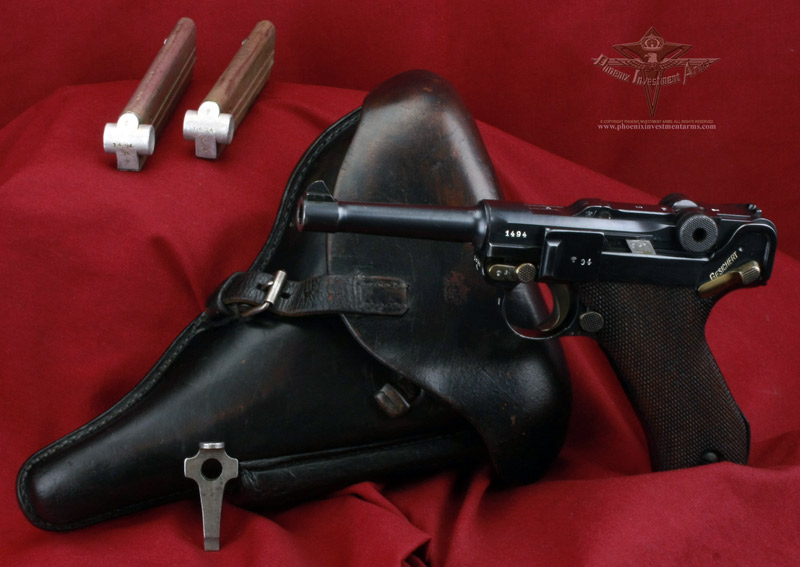|
|
|
This is a 1932's Simson & Co., Luger made for the German Military. It is 9mm with a 4" barrel length and is fantastically proofed. This Parabellum has all matching serial numbers to include matching, original grips. Serial number placement is in the military ("exposed") style. The thumb safety is marked "Gesichert" and extractor "Geladen." The barrel is numbered and proofed and matches the frame. This Simson comes with a holster, proofed loading tool, a second matching magazine. (1574) |
|
|
| Photographs are copyrighted, all rights reserved, any extraction, reproduction or display of gun pictures without the express consent of the Phoenix Investment Arms is strictly prohibited. Thank you for your cooperation. |
|
Simson & Co., were the designated sole producers of the Parabellum after WWI. Simson began producing Lugers for the Weimar Republic from April 1, 1924 until March 31, 1934. Hence the 1925-1926 chamber dates. Some people write that dated Simpsons' are all re-works; others indicate that after the initial supply of parts from Erfurt were expended Simson built their own. No Simson worker nor documentation has survived to verify all the antidotal history, so we have to surmise most of our information from collective inspections of various guns attributed to Simson and their multitude of identifying proofs. |
|
The recent book by Edward Tinker and Graham Johnson, The Simson Luger has attempted to document by profusely illustrating the development of the Simson Luger and provides extensive research into this most prized collector Parabellum. This is a marvelous gun to study for all the proofs it provides. |
